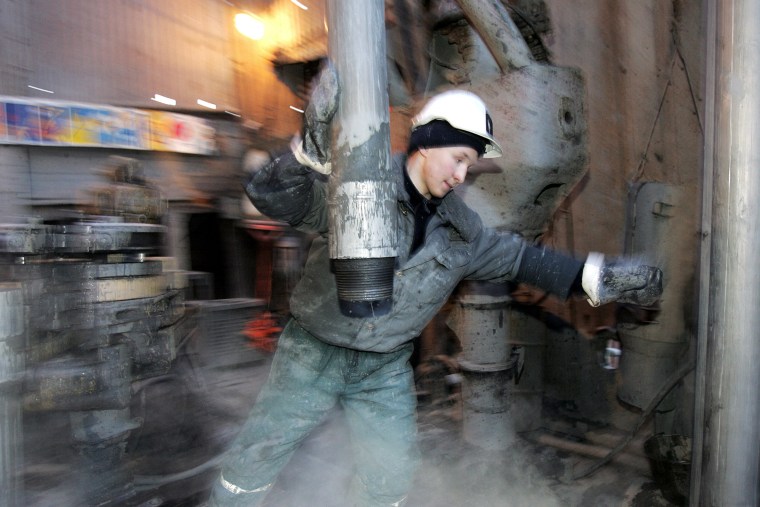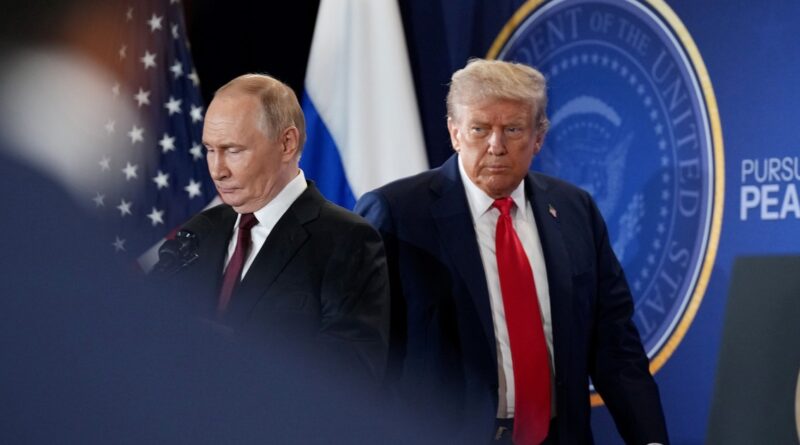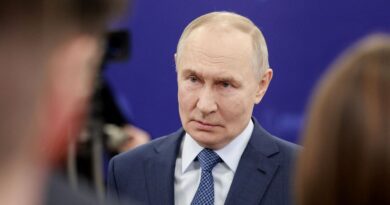Russia furious as Trump sanctions energy giants Rosneft and Lukoil
Russia reacted with outrage Thursday after the United States sanctioned its two largest oil companies, the first economic punishments slapped on Moscow by President Donald Trump during his second term.
Experts said it remains to be seen, however, the extent to which this move may damage the Russian economy or Vladimir Putin’s war machine as Trump hopes to pressure Moscow to halt its assault on Ukraine.
Days after canceling a planned summit with Putin, citing a lack of progress in the negotiations, Trump took the major step by effectively blacklisting Rosneft and Lukoil.
The announcement was welcomed by Kyiv and its European allies, which added their own new raft of sanctions on a Russian regime that has so far managed to weather Western sanctions. The new penalties nonetheless earned the ire of Russian officials and the country’s largely state-controlled media.
If anyone “still harbored illusions — here you go,” said the hawkish ex-President Dmitry Medvedev, who today serves as the deputy chairman of Russia’s Security Council. “The USA is our adversary, and their loquacious ‘peacemaker’” — meaning Trump — “has now fully taken up the path of war with Russia,” Medvedev wrote in a social media post.
“We view this step as purely counterproductive,” added Foreign Ministry spokeswoman Maria Zakharova in a news briefing Thursday. “If the current U.S. administration decides to follow the example of its predecessors,” she said, “the outcome will be exactly the same: a failure, both politically at home and harmful to global economic stability.”

Trump has tried to strongarm both Putin and Ukrainian President Volodymyr Zelenskyy at different times during his second term.
He has often expressed verbal frustration with the man in the Kremlin, accusing him of making positive diplomatic noises before bombing Ukrainian civilians again, but until now relented from taking direct action.
This week, he said that meeting the Russian leader would be a “waste of time,” after Russia rejected American demands that a ceasefire should come before talks.
“We canceled the meeting with President Putin. It just didn’t feel right to me,” Trump said at a White House gathering of reporters. “It didn’t feel like we were going to get to the place we have to get. So I canceled it, but we’ll do it in the future.”
The sanctions drew praise from Ukraine and its supporters.
“We waited for this. God bless, it will work. And this is very important,” Zelenskyy said in Brussels.
This is far from the first time that Russia has been punished like this. Under the Biden administration, the U.S., along with the European Union and others, tried to squeeze Russia’s banking and energy sectors, attempting to isolate it from the global market.
This did cause Russia some pain, with its oil and gas revenues declining after the initial measure introduced in 2022. However it has been able to avoid the worst of it, with its 3.6% economic growth in 2024 outpacing even the United States’ 2.8%. It did this by increasing sales to China and India, and using its so-called “shadow fleet” of vessels to carry exports off-book.
These ships were the target of new E.U. sanctions announced Thursday, which also sought to hit Russian energy and the ability of its diplomats to move freely in Europe.
Zakharova, the Russian foreign ministry spokesperson, was bullish about Russia’s ability to weather these moves, as it has done before.
The measures “will not cause any particular difficulties,” she said. “Our country has developed a strong immunity to Western restrictions and will continue to steadily strengthen its economic and energy potential.”
Western analysts said the picture was more nuanced.

“Russia is extremely skilled at avoiding the consequences of Western sanctions,” Brett Bruen, the director of global engagement in the Obama White House and a career American diplomat, told NBC News.
Peter Harrell, a fellow at the Carnegie Endowment for International Peace who served in the Biden administration, called the U.S. sanctions a “heartening move.” While Eddie Fishman, a senior research scholar at the Center on Global Energy Policy at Columbia University, agreed that “this is a big step.”
However, he and others said that the sanctions’ success would depend on two things: how strictly the U.S. is willing and able to enforce them; and whether it decides to take any actions on other countries buying Russian energy, namely the two Asian giants propping up Moscow so far.
“Trump does not feel beholden in the same way that Biden was not touching third rails,” said Bruen, describing what he views as Trump’s willingness to grapple with previously “untouchable” foreign policy issues.
“And so if he is willing to use secondary sanctions, with more aggressive steps such as expanding the radius of where Ukraine can use Western weapons, all of that will mount pressure on Putin.”





